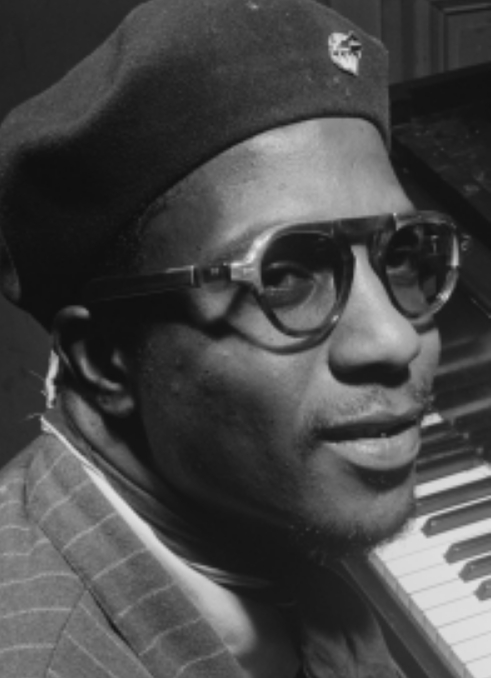On this date in 1917, the American jazz composer and pianist Thelonious Sphere Monk was born in Rocky Mount, North Carolina. When he was 5, his family moved to Manhattan, where he started playing the piano, largely self-taught. His compositions “Round Midnight,” “Well, You Needn’t,” Straight, No Chaser,” “Blue Monk” and others have become standards in the jazz repertoire. “Round Midnight” is the most recorded jazz standard written by a jazz musician, appearing on more than 1,000 albums.
Monk’s idiosyncratic style utilized unexpected melodic twists, dissonant harmonies (which are pleasing to jazz players), erratic percussive phrases punctuated by unexpected hesitations and silences. Despite these unorthodox qualities, Duke Ellington is the only jazz composer who has been recorded more often than Monk, who is one of only five jazz musicians to have been on the cover of Time (along with Louis Armstrong, Duke Ellington, Dave Brubeck and Wynton Marsalis).
Like his music, Monk’s views on religion were also unorthodox. As a teenager, he played the organ for a traveling evangelist, but it appears he was an agnostic who held no religious beliefs of his own. Biographer Robin D. G. Kelly wrote that “Monk clearly was not a true believer” and that “most people who knew Monk remember that he rarely attended church and did not speak about religion in the most flattering terms.”
According to his niece Charlotte, “He was never into religion. Religion was not his thing. … He never went to church or any of that. And his kids, he never took them to church. He said they had to have their own mind about things.” But he was tolerant of religion and sometimes accompanied his mother on the piano as she sang her beloved hymns while she was dying of cancer.
After years of declining health, he died of a stroke at age 64 in Weehawken, N.J. He was posthumously awarded the Grammy Lifetime Achievement Award and a Pulitzer Prize Special Citation. (D. 1982)
PHOTO: Monk in 1947. William P. Gottlieb photo, Library of Congress.


